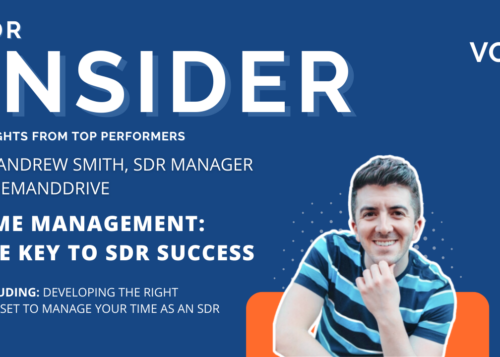The Entrepreneurial Pathway

5 Questions with Clement Schneider
Senior Demand Generation Specialist @ SalesWings
Nobody wants to be an SDR forever. And the good news is that nobody expects you to be an SDR forever.
Because the SDR position is a launching pad for a number of future career opportunities.
You can move down the funnel into a closing role. You can step into leadership and manage SDRs. You can leverage skills into a marketing, revenue, or client success role.
Or…you could start your own company
One of the coolest things about being an SDR is how much you learn about running a business.
You’re exposed to product marketing, account targeting, sales, customer success, effective message creation, product positioning…the list goes on and on.
Especially if you work at a start-up. Those SDRs have their hands in pretty much every bucket available.
And our guest, Clement Schneider, knows a thing or two about start-up life and the value of a well-rounded SDR.
His experience in the start-up world offers a great view into how SDRs can travel down that entrepreneurial path, why you should encourage and enable them to do so, and what it takes to become a successful founder.
Our guest, Clement Schneider, knows a thing or two about start-up life and the value of a well-rounded SDR.
His experience in the start-up world offers a great view into how SDRs can travel down that entrepreneurial path, why you should encourage and enable them to do so, and what it takes to become a successful founder.
Related Resources
Continue exploring

From Tables to Tech – Kristie Jones’ Blueprint for Sales Success

To Succeed in Sales…You Have to Fail

‘No’ In Sales Isn’t Rejection, but Redirection

Time Management – The Key to Success

From Acronym to Sales Career

You Got The Job! Now What?

